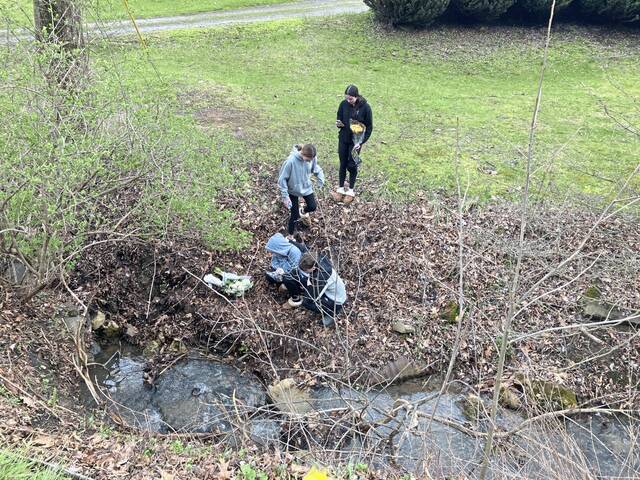Westmoreland County’s Republican commissioners defended a 2025 budget that increased spending in several key categories and carries a more than $9 million deficit.
The shortfall is being covered through a dwindling surplus fund bolstered by a 32.5% tax hike approved last year.
The new budget maintains the current county property tax rate. It was approved Thursday by a 2-1 vote, with Democrat Ted Kopas in opposition.
Republicans Sean Kertes and Doug Chew said the spending plan was designed to allow for continued investments into the county’s future while also conceding the financial outlook remains a concern moving into 2025 and beyond.
“It’s not that we want to spend, but we are trying to keep this place functioning,” Kertes said. “This is a plan to keep moving forward, and this year we did what we had to do to survive.”
Finance Director Meghan McCandless said the commissioners diverted about $9 million from the county’s surplus to balance the budget. That surplus is projected to be just $15 million at the end of next year.
“We are not in a strong financial condition,” McCandless said.
The budget includes salary increases for staff and reflects rising health care costs. It includes a nearly $20 million allocation to the county’s pension fund to ensure its solvency.
It also restores funding levels for key programs such as Westmoreland County Community College, the industrial development corporation and conservation district, which saw cuts in their allocations this year.
The commissioners last December slashed about $1 million from the county’s annual allocation to the community college and eliminated all funding to the industrial development corporation, which is the county’s chief economic development arm. The 2025 budget includes nearly $3.5 million in funding to the community college, a $976,000 increase from the previous year, and restored $350,000 in funding to the development agency.
Kertes said ensuring the community college remains on solid financial ground and support for the economic development program were key goals.
“They’ve lost their executive staff, the president and others have left; and, if we cut the college while they are trying to find a new president, it would be an absolute failure. I don’t want to cut education,” Kertes said. “We don’t want to cut off our nose to spite our face. I am sick and tired of not maintaining a … damn thing. We can’t let the industrial park system go to hell. We have to invest in the county.”
Kopas said the new budget could endanger county finances in future years.
“We can’t keep doing the same things and asking more of our taxpayers. The budget that was just passed will lead to another tax increase,” Kopas said. “This budget adds $3 million in personnel costs, and there needs to be restraint. And to date, there has not been.”
Chew blamed national economic conditions for the county’s budget woes.
“Kopas’ party’s Bidenomics over the last four years made childcare, gas, food and everything else unaffordable on a wage of $35,000 a year,” Chew said. “The rising salaries are needed to remain competitive, but this is not sustainable. We need to address this with our department heads and we will work on this in 2025.”
The budget includes pay raises for union and nonunion staff. Chew and Kertes on Thursday approved 3.4% raises for about 400 nonunion employees, mirroring pay hikes elected officials will receive under mandatory cost-of-living adjustments set by the Consumer Price Index.
Budget expenses are expected to outpace revenues by $9 million in 2025.
Overall, the budget includes about $5 million less in overall spending, but general county operations is projected to increase by nearly $28 million. McCandless said $21 million of that additional spending is primarily connected to a series of state economic development grants that will not impact the county deficit.
To balance the budget, commissioners allocated the county’s remaining $9 million in federal American Rescue Plan funds to pay for county operations. The county was required to allocate all of its $105.4 million in covid-relief funds by the end of this year.








